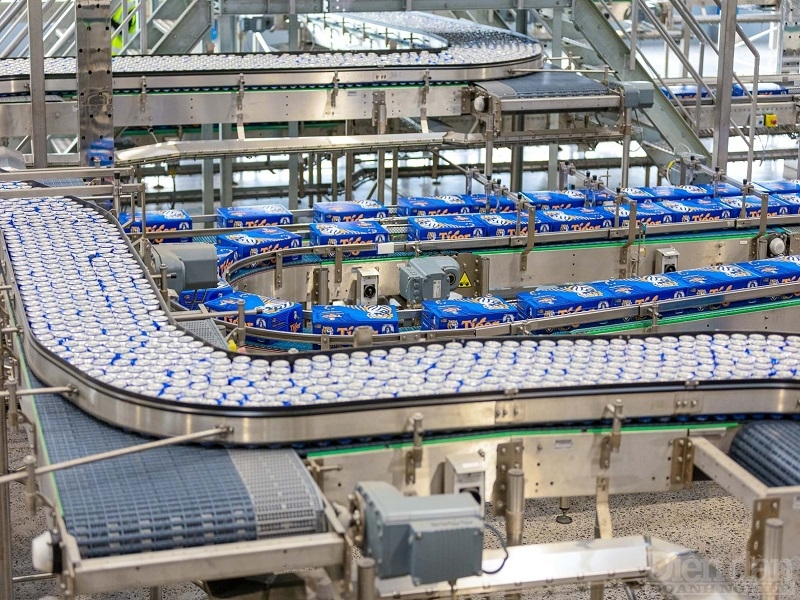Proposal to increase excise tax on alcohol: what do businesses say?
Businesses in the alcohol industry are greatly astonished by the proposal to raise excise taxes, calling it the worst shock in history.
Mr. Nguyen Van Viet, Chairman of the Vietnam Beer - Alcohol - Beverage Association (VBA), said reporter at the Business Forum that the planned increase in excise tax has harmed several enterprises in the industry.
- How are members of the VBA currently? What obstacles and hurdles do they face, sir?
In reality, the beverage business has seen "several shocks" in recent years. Businesses have recently suffered enormous losses as a result of the COVID-19 epidemic, and they have yet to recover from the long-term implementation of a rigorous "zero alcohol" policy. This policy has impacted the sales of alcoholic beverage producers and distributors, particularly beer companies, which have faced numerous restrictions under at least four major laws: the Law on Prevention of Alcohol Harms, the Law on Excise Taxes, the Law on Commerce, the Law on Advertising, and e-commerce regulations. The measures that promote VAT reductions do not apply to the alcoholic beverage industry.

Mr. Nguyen Van Viet – Chairman of the Vietnam Beer - Alcohol - Beverage Association.
A chain reaction was noticed, with restaurants and cafes experiencing a substantial drop in customers, leading to closures or staff cutbacks and downsizing, which ultimately impacted the whole supply chain, including farmers.
For the first time in decades, our sector had a double-digit fall in 2023, causing beverage companies to reduce production and business operations, lay off many employees, and close regional offices. Some firms were forced to stop or close, having a significant impact on local social welfare and budgets, as well as workers' livelihoods.
- Recently, the Ministry of Finance recommended two timelines for the excise tax rise. How will the tax hike affect the field's businesses?
Given the industry's existing difficult circumstances, the organization and firms were taken aback by the plan to raise excise taxes. This is the most significant "shock" rise in the history of alcohol excise tax hikes.
The World Health Organization (WHO) makes generic guidelines for nations with diverse economic situations, which do not apply to Vietnam. Proposals must be based on and thoroughly analyzed against Vietnam's present condition and practicality of implementation; WHO recommendations should only be used as a guideline.
If this legislation is implemented, we cannot yet envision or analyze the enormous effects it may have. Many enterprises in the beverage sector may be forced to liquidate, with their equipment sold for scrap, resulting in hundreds of thousands of job losses, hurting social welfare, local budgets, and the entire beverage ecosystem. It may potentially have an influence on investor confidence and the investment climate in Vietnam.
Excise tax policies have significant consequences that necessitate comprehensive evaluations, including the significant contributions of the beverage industry to society and the economy, the direct and indirect effects on consumers, the investment environment, labor, and business competitiveness, as well as the goal of protecting public health.
- Regarding the viewpoint that a high tax rate is necessary to raise awareness and action about the harms of excessive alcohol consumption, leading to increased product prices, what suggestions do you have to ensure that the tax application benefits consumers and the economy?
When taxes and product costs grow, buyers tend to turn to less expensive, unregulated, low-quality, smuggled, and counterfeit items. Tax rises will decrease the competitiveness of domestic products.
International experience reveals that substantial tax rises widen the benefit gap between legitimate and illegal items, increasing smuggling and posing several concerns to consumer health,, as well as incurring expenses for market management and customs authorities combatting smuggling. Current surveys in some areas reveal that private enterprises manufacture counterfeit beer brands and sell them on the market at extremely low costs, nearly equivalent to the manufacturing cost before taxes. The estimated manufacturing volume of these counterfeit beer brands is between 200 and 300 million liters.
Tax increases are just one solution. The government needs to research and implement solutions to strictly combat smuggling, counterfeit goods, and low-quality products with unclear origins to protect legitimate businesses, prevent revenue loss, and safeguard consumer health. The total financial loss from this informal sector is estimated at around USD 2.816 million, with USD 751 million from production losses and about USD 2.015 million from smuggling and counterfeit activities.

The Ministry of Finance’s proposal for an excise tax increase is seen as the largest "shock" for the alcohol industry.
- As the Chairman of VBA, what recommendations do you have for the authorities to support the beverage business community in the coming time?
The association and firms in the beverage sector recognize and support the government's aims of state management and safeguarding the health and safety of its citizens and communities. We will formally submit input to the Ministry of Finance, the Government, and the National Assembly, urging them to consider lowering the tax rise rate and prolonging the increase timeframe to minimize "shocks," stabilize the market, and allow firms to adapt to future tax increases.
Thank you very much!








